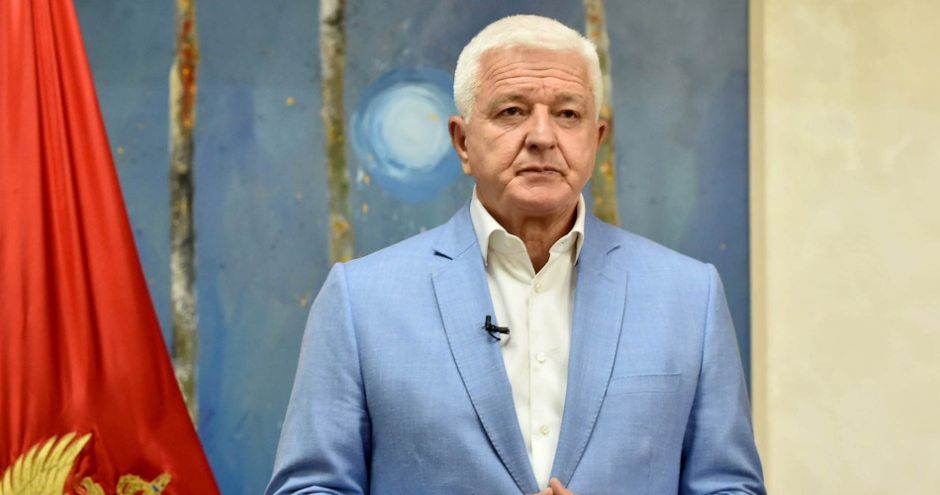Alongside July 13th, May 21st is one of the most important dates in Montenegro’s history. After more than 80 years of state, national, and overall suppression, the country finally managed to rise and reclaim its place on the world map, says former Prime Minister and current leader of the Party of European Progress, Duško Marković, in an interview with Antena M.
“I must remind you that despite strong resistance from within the country, the region, and the international community, we succeeded in restoring independence,” he added.
Antena M: In your congratulatory message on May 21st, you called the restoration of independence a historic act of responsibility. However, many believe that the government at the time failed to responsibly safeguard the country’s identity, neglected to develop a national strategy, and that this negligence has led to the current situation of endangered sovereignty. What is your response?
Marković: I want to address this question clearly: the general and strategic policies were properly set and, to the greatest extent possible, almost fully implemented. The foreign policy direction that guided Montenegro toward Europe and the West was the right choice. In other words, becoming part of the Euro-Atlantic community is the best path for Montenegro. Furthermore, good neighborly relations in the region and regional stability characterized the politics of that time.
Montenegro, as a civic and multi-ethnic society, is also a value we fought for, and it is truly the key to its stability and survival. During this period, Montenegro also achieved financial stability and economic self-sufficiency. Today, it is a much more developed and wealthier society than it was before independence.
Of course, I agree with many objective, and I emphasize, objective, critics who point out that the government that led to independence had weaknesses on the domestic front. Not enough was done to strengthen institutions, uphold the rule of law, and improve citizens’ living standards. But what is often forgotten, and at this moment, we must be fair, is whether the government alone was responsible for this.
It’s not just overlooked, but often underestimated, how persistent the resistance and sabotage have been, from individuals, political elites, certain parties, and their support networks, in undermining the independent state, discrediting institutions, and trying to prove that the referendum was stolen. People tend to forget that opponents of independence have consistently blocked our path to the EU, and that today’s ruling political elite, except for a few minority parties, voted unanimously not only against independence but also against joining NATO. They frequently boycotted parliament during certain periods, even skipping entire terms, including during every crucial decision about Montenegro’s future. Given this level of obstruction, I believe it was simply impossible to achieve more.
On the other hand, Montenegro is probably the only example in the world where a segment of citizens dissatisfied with the government would be willing to change not just the government, but the entire state itself. Elsewhere, bad governments get replaced, but the country remains loved and valued; it’s not swapped out for something entirely different. Because of this, I believe the problems run deeper and are more serious and long-standing than mere dissatisfaction with those in power.
Of course, opponents of the state run a deliberate, organized campaign that clouds the real issues. Unfortunately, some media outlets fail to address this properly. Nowadays, most media headlines marking this anniversary ask the same question: “Have the expectations from the independence referendum been met?” My answer is: absolutely yes.
At the referendum, we voted for Montenegro and its independence, and we got it. What other country could be better for us? Montenegro will forever remain the only and best choice for its citizens. That, I would say, is my answer to your question.
Antena M: Who or what poses the biggest threat to an independent Montenegro today? Is the threat greater from within the country or from outside?
Marković: We saw the response on May 21st. Several top state officials didn’t even congratulate the country on Independence Day, skipped official events, and openly expressed disappointment that Montenegro is independent.
So, the vast majority of those in power don’t truly respect this date. Some show it openly and without hesitation, while others hide behind dry protocol.
Because of this, under the current government, Montenegro has never been less independent. After nearly five years of various setbacks, I believe more and more citizens are starting to realize this today.
Antena M: The circumstances now are quite different from 2006. What do you see as the key differences, and if a referendum were held this Sunday, would an independent Montenegro win again?
Marković: Internal, regional, and global factors bring us more uncertainty than security, I’d even say complete unpredictability. But I’m confident that in a new referendum, an independent and sovereign Montenegro would prevail.
Of course, I don’t think such a referendum will happen because new generations understand how important it is to have their own home and be free in it.
Even though it sometimes seems like Montenegro has carelessly handed over its fate to those who don’t see it as their only homeland, I firmly believe this difficult period won’t last much longer. Montenegro will find its way back to itself.









Katunjanin
G-dine Markovicu ,necu da prozivam nikoga od vas politicara iz CG bloka zbog ubjedjenja da ste svi vi imali dobre namjere , medjutim ja kao Crnogorac trazim od svih vas ;" Vratite nam nase svetinje inace ste ga ugasili " - od lijepih rijeci nema vajde , za nas -a IMA NAS !